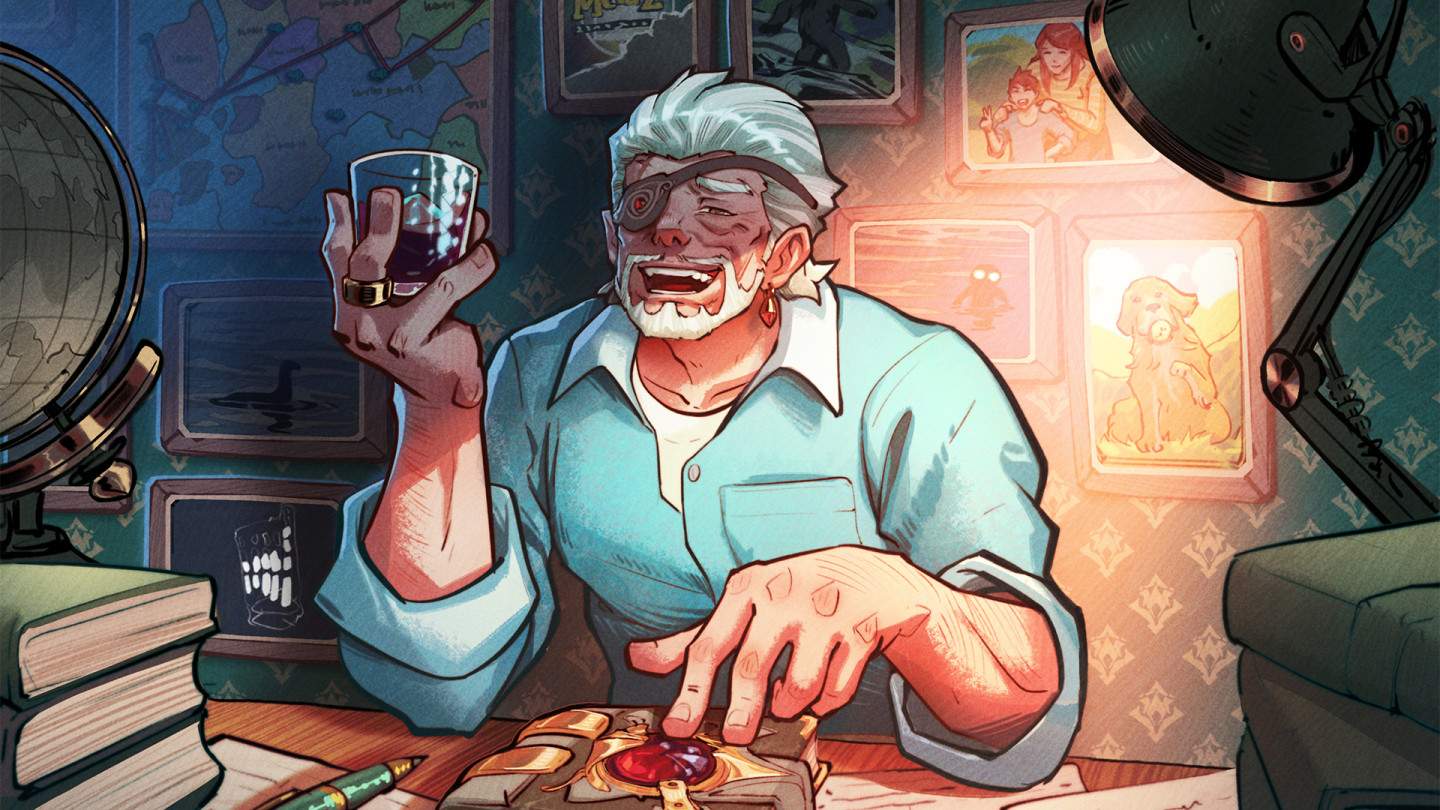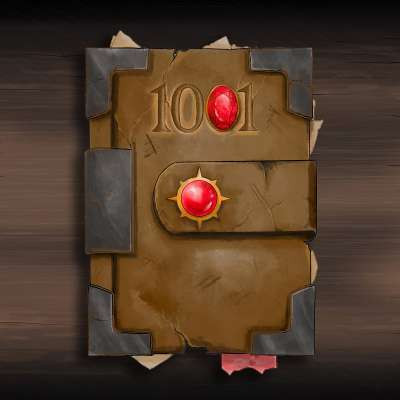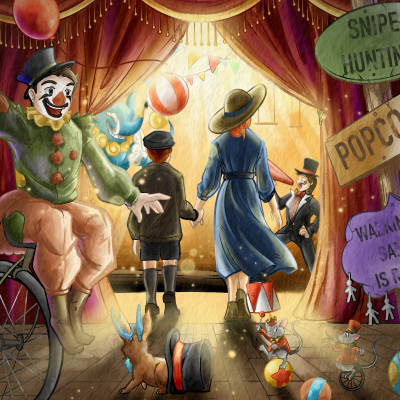III: The beast. An unkind word.
The strange creatures I could see that no one else seemed to were called cryptids. Because I could see them, I was a caster. And the rare card my mother had gifted me was a means by which I “mapped” a cryptid, making a bit of its essence to mix with mine and make the result my own.
This was what I kept explaining to myself over and over again as I headed down to the loch on my own, at an angle that would keep me some distance from where my da’ was catching brown trout for tea in a few hours. My mother had pointed the way and told me what I needed to do.
A caster.
I had no idea what that would mean for my future. I tried not to think too hard about it.
When I reached the water, I did as my mother had instructed me: I took the blank card, propped it up in a low-hanging branch on a tree at the waterline, and moved farther down along the shore, keeping a direct line of sight between it and me. Once I found the right spot to hide, I took out the book she had given me—my “spellbook,” she’d called it—and waited.
“When the beast passes between you and your card,” she had said, “you will have the opportunity to map its essence.”
When I had asked, more than a little bewildered, how she knew this exact spot was where the monster would emerge along all 37 kilometers—23 miles—of Loch Ness’s shore, she’d smiled and said, “As a caster, you’ll figure these things out.”
I knelt down in the afternoon weeds, the sun pleasant enough above, and kept both eyes on my card, now a tiny little spot up along the edge of the water. Periodically, the loch’s surface rippled, and each time it did, I froze, hefting my book and placing my hand on a card inside the first page in preparation to “map” the way she’d shown me. But nothing emerged, and soon I was sweating, either from anticipation or just the being overdressed for the day, I didn’t know.
Near to me, the water rippled and then went still again. Bubbles trailed along the shoreline for a short distance. I felt lightheaded, only to realize I was holding my breath. When I let it out again, I felt a cold terror blind me as the sky went dark and an enormous form rose from the water into the sky.
Even though I knew it was there, when the beast suddenly burst toward the sky and crashed onto the shore, it so took me by surprise that I cried out.
It was long, easily twenty feet from head to tail, with a skinny neck and a snake-like head. Its body was thick with four fins, brownish-black on top and silver on its underside. Its head bobbed as it pulled itself out of the loch, reaching up to snag leaves from a low-hanging branch overhead. I could plainly see the eye on one side of its head; that eye closed as it pulled the leaves from the branch and chewed on them slowly. I put my hand over the card in my spellbook. I could feel the distant presence of the mapping card, and it expanded as I rose from the weeds. My own eyes lost focus as I sensed the enlargement of a rectangle of energy from that card in the tree, something akin to a gate opening up and beginning to move toward the monster.
I was mapping, I told myself. I could hardly wait to tell Mam what I’d accomplished.
But we were not alone.
To my right, a second gate seemed to be forming, and a figure who had been squatting in the water closer to where the beast emerged stood up abruptly, raising a book of his own. He shouted something in a foreign tongue, and the beast’s head whipped around to face the stranger. I could see that a second card, at a right angle to my own in the trees yards away from me, had begun to glow with an undefined energy.
Just like that, everything went wrong. The beast shot backward into the water, as silent as a blimp but with a splash that cascaded in ripples across the loch’s surface. The two cards, mine and the stranger’s, both shattered with a crackling noise like glass, shards falling to the earth and jolting each of us. I lost my footing and fell; when I found my feet again, the beast was gone, and the stranger was coming my way.
“You idiot,” he shouted as he closed on me. “You owe me a card. And I want it right damned now.”
I was the youngest of three boys—with older brothers, you learn never to back down. I tramped through the weeds to meet him. “I owe you nothing, lad. It’s you who be owing me.”
He was perhaps a few years older than me with dark curly hair that was too long to be the fashion. He needed a shave. He was soaked up to his waist from standing in the loch, and his face was flush with anger.
“Nein,” he said. “I come a thousand miles to have a stupid cow ruin my mapping.”
I looked around for a moment before I realized that the stupid cow he was referring to was me. So, I carefully put my book down before I barreled toward him.
To his credit, he was very fast. He didn’t have much of a lead on me, but the distance between us grew very quickly as he raced back up from the shore and into the wooded areas along the shore. When I stopped and put my hands on my knees to catch my breath, he turned back toward me.
“You! You are my erzfeind now,” he shouted and jabbed a finger at me. Even from where I stood hunched over, I could see him trembling. I hoped it was with fear; I suspected it was with rage.
“Keep running, ya diddy,” I shouted back. He went so far as to stereotypically shake a fist at me—I thought maybe he’d learned to be a bad guy by watching the talkies I’d heard about from my siblings. Then he was gone into the bushes, and I had to collect the broken pieces of my card so I could take it back to my mother. Maybe she could fix it, I told myself. For the record, she could not.
Erzfeind, he had called me. A few weeks later, I had to ask one of our distant neighbors, Mr. Vogt, what the word meant. I could tell it was German, yet that was all.
Nemesis, he told me, but when I looked confused, he added, Arch-enemy.
An unkind word.
I would not hear it again until the War was on in Europe, when the young German caster and I would meet a second time.



